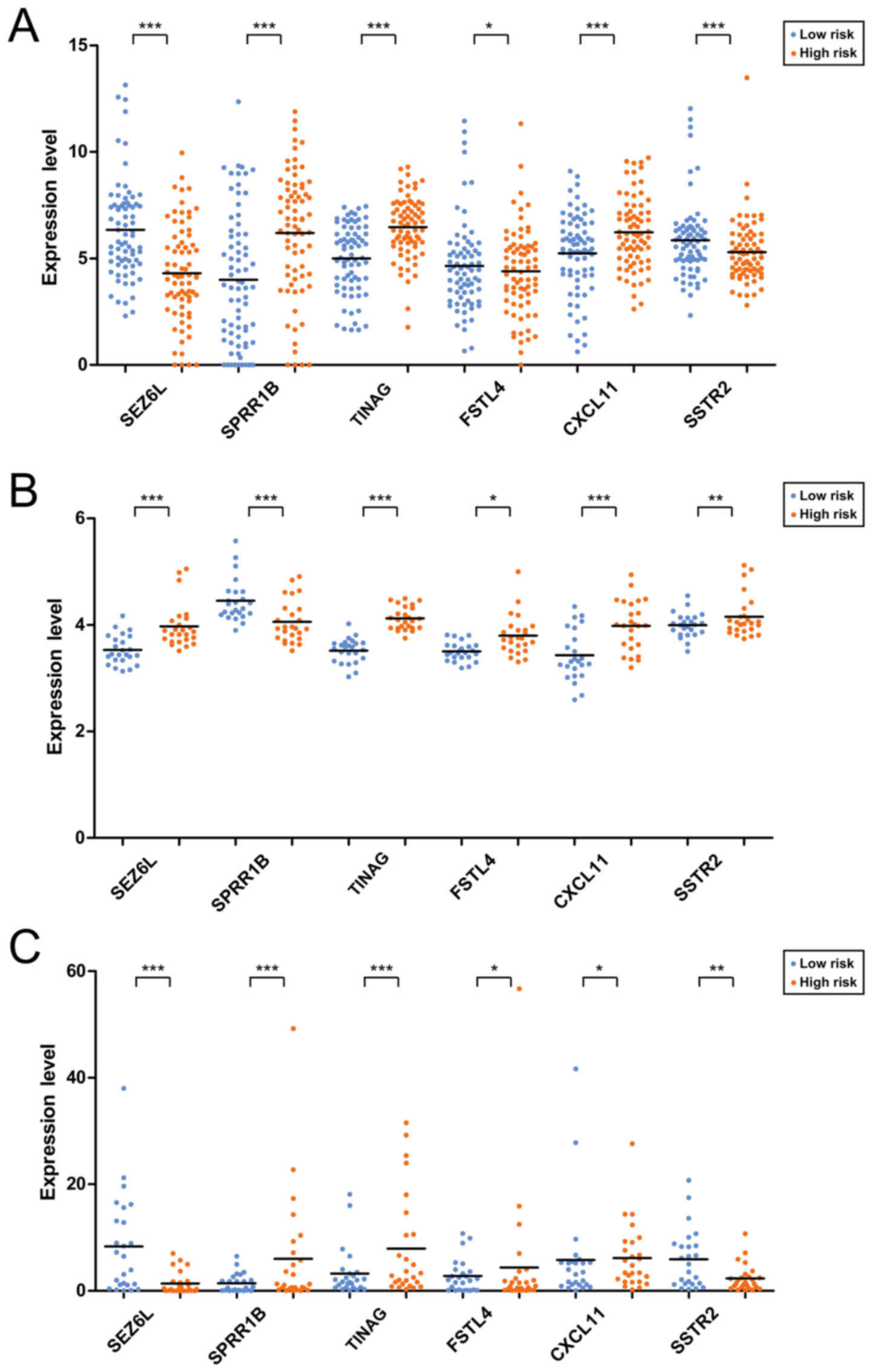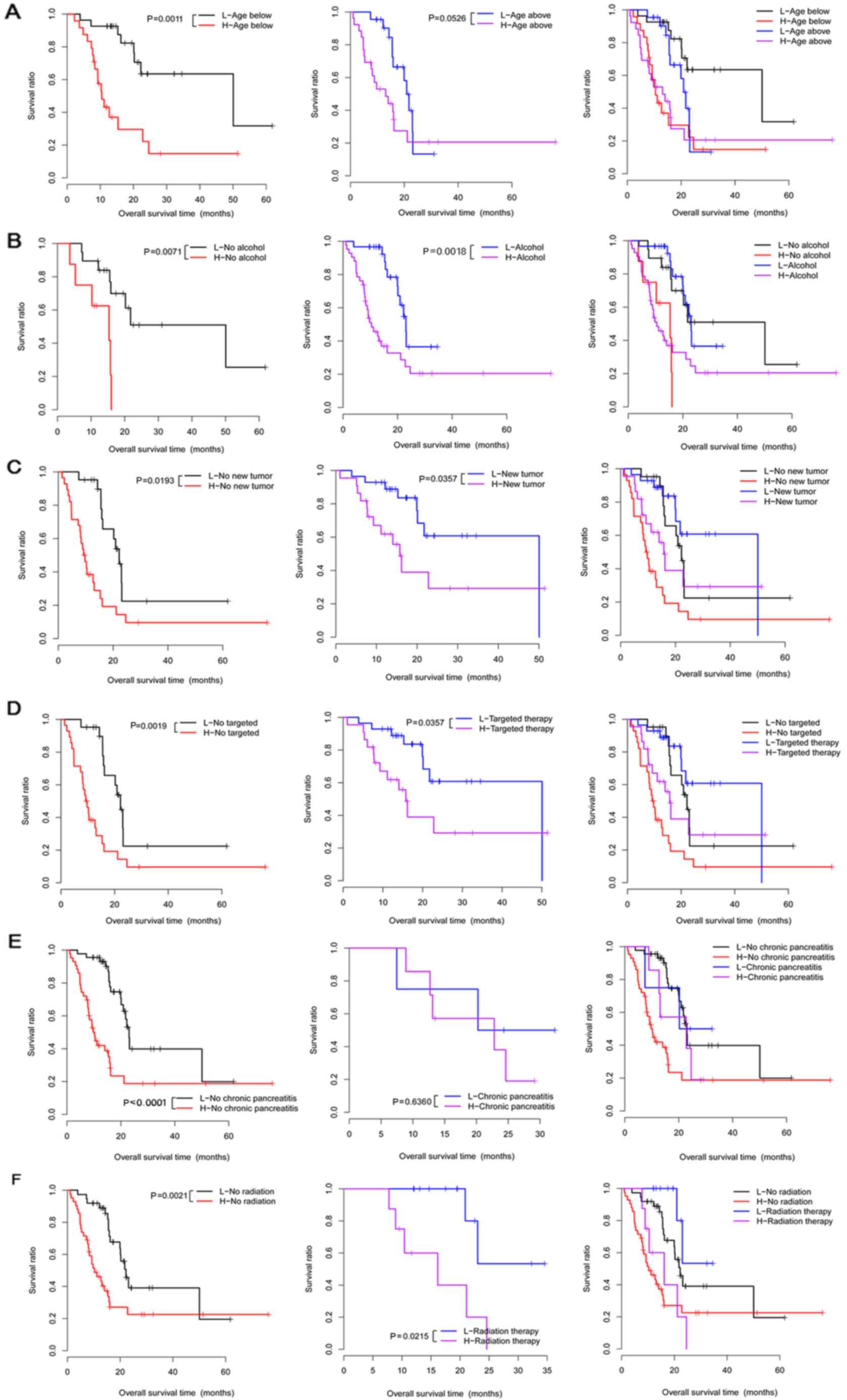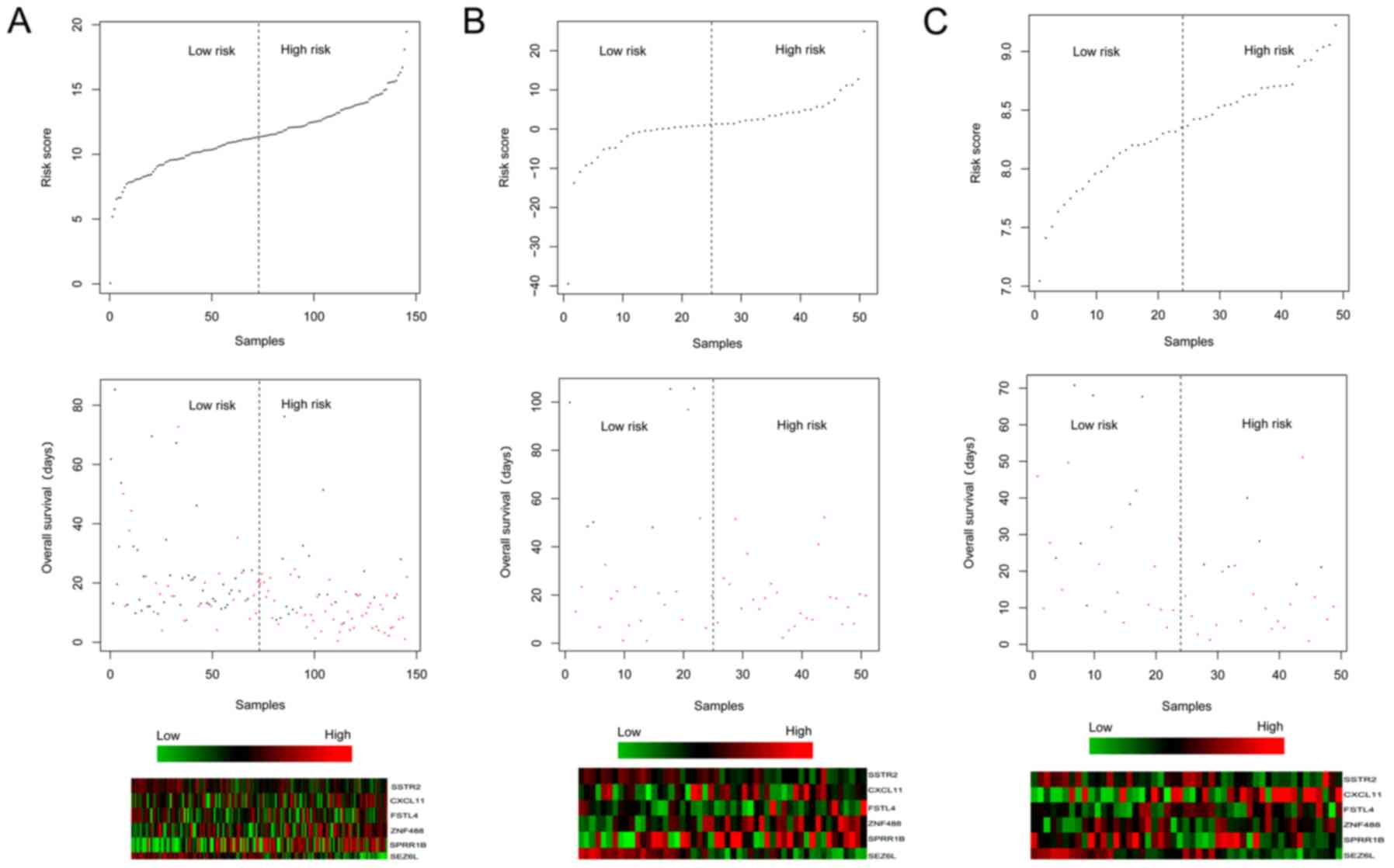|
1
|
Husain K: Pancreatic cancer treatment.
Cancer Sci. 5:1100. 2014.
|
|
2
|
Hidalgo M: Pancreatic cancer. N Engl J
Med. 362:1605–1617. 2010. View Article : Google Scholar : PubMed/NCBI
|
|
3
|
Maisonneuve P and Lowenfels AB: Risk
factors for pancreatic cancer: A summary review of meta-analytical
studies. Int J Epidemiol. 44:186–198. 2015. View Article : Google Scholar : PubMed/NCBI
|
|
4
|
Lowenfels AB and Maisonneuve P:
Epidemiology and risk factors for pancreatic cancer. Best Pract Res
Clin Gastroenterol. 20:197–209. 2006. View Article : Google Scholar : PubMed/NCBI
|
|
5
|
McGuire S: World cancer report 2014.
Geneva, Switzerland: World health organization, international
agency for research on cancer, WHO Press, 2015. Adv Nutr.
7:418–419. 2016. View Article : Google Scholar : PubMed/NCBI
|
|
6
|
Bond-Smith G, Banga N, Hammond TM and
Imber CJ: Pancreatic adenocarcinoma. BMJ. 344:e24762012. View Article : Google Scholar : PubMed/NCBI
|
|
7
|
Yeo CJ and Cameron JL: Prognostic factors
in ductal pancreatic cancer. Langenbecks Arch Surg. 383:129–133.
1998. View Article : Google Scholar : PubMed/NCBI
|
|
8
|
Oshima M, Okano K, Muraki S, Haba R, Maeba
T, Suzuki Y and Yachida S: Immunohistochemically detected
expression of 3 major genes (CDKN2A/p16, TP53, and
SMAD4/DPC4) strongly predicts survival in patients with
resectable pancreatic cancer. Ann Surg. 258:336–346. 2013.
View Article : Google Scholar : PubMed/NCBI
|
|
9
|
Song W, Tao K, Li H, Jin C, Song Z, Li J,
Shi H, Li X, Dang Z and Dou K: Bmi-1 is related to proliferation,
survival and poor prognosis in pancreatic cancer. Cancer Sci.
101:1754–1760. 2010. View Article : Google Scholar : PubMed/NCBI
|
|
10
|
Proctor E, Waghray M, Lee CJ, Heidt DG,
Yalamanchili M, Li C, Bednar F and Simeone DM: Bmi1 enhances
tumorigenicity and cancer stem cell function in pancreatic
adenocarcinoma. PLoS One. 8:e558202013. View Article : Google Scholar : PubMed/NCBI
|
|
11
|
Kahlert C, Bergmann F, Beck J, Welsch T,
Mogler C, Herpel E, Dutta S, Niemietz T, Koch M and Weitz J: Low
expression of aldehyde deyhdrogenase 1A1 (ALDH1A1) is a prognostic
marker for poor survival in pancreatic cancer. BMC Cancer.
11:2752011. View Article : Google Scholar : PubMed/NCBI
|
|
12
|
Hoshino Y, Nishida J, Katsuno Y, Koinuma
D, Aoki T, Kokudo N, Miyazono K and Ehata S: Smad4 decreases the
population of pancreatic cancer-initiating cells through
transcriptional repression of ALDH1A1. Am J Pathol.
185:1457–1470. 2015. View Article : Google Scholar : PubMed/NCBI
|
|
13
|
Schaeffer DF, Owen DR, Lim HJ, Buczkowski
AK, Chung SW, Scudamore CH, Huntsman DG, Ng SS and Owen DA:
Insulin-like growth factor 2 mRNA binding protein 3 (IGF2BP3)
overexpression in pancreatic ductal adenocarcinoma correlates with
poor survival. BMC Cancer. 10:592010. View Article : Google Scholar : PubMed/NCBI
|
|
14
|
Nguyen Kovochich A, Arensman M, Lay AR,
Rao NP, Donahue T, Li X, French SW and Dawson DW: HOXB7 promotes
invasion and predicts survival in pancreatic adenocarcinoma.
Cancer. 119:529–539. 2013. View Article : Google Scholar : PubMed/NCBI
|
|
15
|
Chile T, Fortes MA, Corrêa-Giannella ML,
Brentani HP, Maria DA, Puga RD, de Paula Vde J, Kubrusly MS, Novak
EM, Bacchella T, et al: HOXB7 mRNA is overexpressed in pancreatic
ductal adenocarcinomas and its knockdown induces cell cycle arrest
and apoptosis. BMC Cancer. 13:4512013. View Article : Google Scholar : PubMed/NCBI
|
|
16
|
Zhang Y, Szustakowski J and Schinke M:
Bioinformatics analysis of microarray data. Methods Mol Biol.
573:259–284. 2009. View Article : Google Scholar : PubMed/NCBI
|
|
17
|
Kirby MK, Ramaker RC, Gertz J, Davis NS,
Johnston BE, Oliver PG, Sexton KC, Greeno EW, Christein JD, Heslin
MJ, et al: RNA sequencing of pancreatic adenocarcinoma tumors
yields novel expression patterns associated with long-term survival
and reveals a role for ANGPTL4. Mol Oncol. 10:1169–1182.
2016. View Article : Google Scholar : PubMed/NCBI
|
|
18
|
Yang S, He P, Wang J, Schetter A, Tang W,
Funamizu N, Yanaga K, Uwagawa T, Satoskar AR, Gaedcke J, et al: A
novel MIF signaling pathway drives the malignant character of
pancreatic cancer by targeting NR3C2. Cancer Res. 76:3838–3850.
2016. View Article : Google Scholar : PubMed/NCBI
|
|
19
|
Smyth GK: Limma: Linear models for
microarray data. Bioinformatics Comput Biol Solutions Using R and
Bioconductor. 397–420. 2005. View Article : Google Scholar
|
|
20
|
Therneau T: A package for survival
analysis. R package. 2.37–2. 2012.
|
|
21
|
Kleinbaum DG and Klein M: Kaplan-meier
survival curves and the log-rank test. Statistics Biol Health.
45–82. 2012.
|
|
22
|
Gui J and Li H: Penalized Cox regression
analysis in the high-dimensional and low-sample size settings, with
applications to microarray gene expression data. Bioinformatics.
21:3001–3008. 2005. View Article : Google Scholar : PubMed/NCBI
|
|
23
|
Huang DW, Sherman BT, Tan Q, Collins JR,
Alvord WG, Roayaei J, Stephens R, Baseler MW, Lane HC and Lempicki
RA: The DAVID gene functional classification tool: A novel
biological module-centric algorithm to functionally analyze large
gene lists. Genome Biol. 8:R1832007. View Article : Google Scholar : PubMed/NCBI
|
|
24
|
Keeley EC, Mehrad B and Strieter RM: CXC
chemokines in cancer angiogenesis and metastases. Adv Cancer Res.
106:91–111. 2010. View Article : Google Scholar : PubMed/NCBI
|
|
25
|
Keeley EC, Mehrad B and Strieter RM:
Chemokines as mediators of tumor angiogenesis and
neovascularization. Exp Cell Res. 317:685–690. 2011. View Article : Google Scholar : PubMed/NCBI
|
|
26
|
Heinrich EL, Lee W, Lu J, Lowy AM and Kim
J: Chemokine CXCL12 activates dual CXCR4 and CXCR7-mediated
signaling pathways in pancreatic cancer cells. J Transl Med.
10:682012. View Article : Google Scholar : PubMed/NCBI
|
|
27
|
Wente MN, Mayer C, Gaida MM, Michalski CW,
Giese T, Bergmann F, Giese NA, Büchler MW and Friess H: CXCL14
expression and potential function in pancreatic cancer. Cancer
Lett. 259:209–217. 2008. View Article : Google Scholar : PubMed/NCBI
|
|
28
|
Viloria K, Munasinghe A, Asher S, Bogyere
R, Jones L and Hill NJ: A holistic approach to dissecting SPARC
family protein complexity reveals FSTL-1 as an inhibitor of
pancreatic cancer cell growth. Sci Rep. 6:378392016. View Article : Google Scholar : PubMed/NCBI
|
|
29
|
Trojan L, Schaaf A, Steidler A, Haak M,
Thalmann G, Knoll T, Gretz N, Alken P and Michel MS: Identification
of metastasis-associated genes in prostate cancer by genetic
profiling of human prostate cancer cell lines. Anticancer Res.
25:183–191. 2005.PubMed/NCBI
|
|
30
|
Chalabidchar M, Cassantsourdy S, Duluc C,
Fanjul M, Lulka H, Samain R, Roche C, Breibach F, Delisle MB,
Poupot M, et al: Loss of somatostatin receptor subtype 2 promotes
growth of KRAS-induced pancreatic tumors in mice by activating PI3K
signaling and overexpression of CXCL16. Gastroenterology.
148:1452–1465. 2015. View Article : Google Scholar : PubMed/NCBI
|
|
31
|
Du ZY, Qin RY, Xia W, Tian R and Kumar M:
Gene transfer of somatostatin receptor type 2 by intratumoral
injection inhibits established pancreatic carcinoma xenografts.
World J Gastroenterol. 11:516–520. 2005. View Article : Google Scholar : PubMed/NCBI
|
|
32
|
Carrere N, Vernejoul F, Souque A, Asnacios
A, Vaysse N, Pradayrol L, Susini C, Buscail L and Cordelier P:
Characterization of the bystander effect of somatostatin receptor
sst2 after in vivo gene transfer into human pancreatic cancer
cells. Human Gene Ther. 16:1175–1193. 2005. View Article : Google Scholar
|
|
33
|
Pigoni M, Wanngren J, Kuhn PH, Munro KM,
Gunnersen JM, Takeshima H, Feederle R, Voytyuk I, De Strooper B,
Levasseur MD, et al: Seizure protein 6 and its homolog seizure
6-like protein are physiological substrates of BACE1 in neurons.
Mol Neurodegener. 11:672016. View Article : Google Scholar : PubMed/NCBI
|
|
34
|
Nishioka M, Kohno T, Takahashi M, Niki T,
Yamada T, Sone S and Yokota J: Identification of a 428-kb
homozygously deleted region disrupting the SEZ6L gene at
22q12.1 in a lung cancer cell line. Oncogene. 19:6251–6260. 2000.
View Article : Google Scholar : PubMed/NCBI
|
|
35
|
Gorlov IP, Meyer P, Liloglou T, Myles J,
Boettger MB, Cassidy A, Girard L, Minna JD, Fischer R, Duffy S, et
al: Seizure 6-like, SEZ6L) gene and risk for lung cancer.
Cancer Res. 67:8406–8411. 2007. View Article : Google Scholar : PubMed/NCBI
|
|
36
|
Tesfaigzi Y, Wright PS and Belinsky SA:
SPRR1B overexpression enhances entry of cells into the
G0 phase of the cell cycle. Am J Physiol Lung Cell Mol
Physiol. 285:L889–L898. 2003. View Article : Google Scholar : PubMed/NCBI
|
|
37
|
Yoshioka K, Takemura T and Hattori S:
Tubulointerstitial nephritis antigen: Primary structure, expression
and role in health and disease. Nephron. 90:1–7. 2002. View Article : Google Scholar : PubMed/NCBI
|
|
38
|
Wex T, Lipyansky A, Brömme NC, Wex H, Guan
XQ and Brömme D: TIN-ag-RP, a novel catalytically inactive
cathepsin B-related protein with EGF domains, is predominantly
expressed in vascular smooth muscle cells. Biochemistry.
40:1350–1357. 2001. View Article : Google Scholar : PubMed/NCBI
|




















